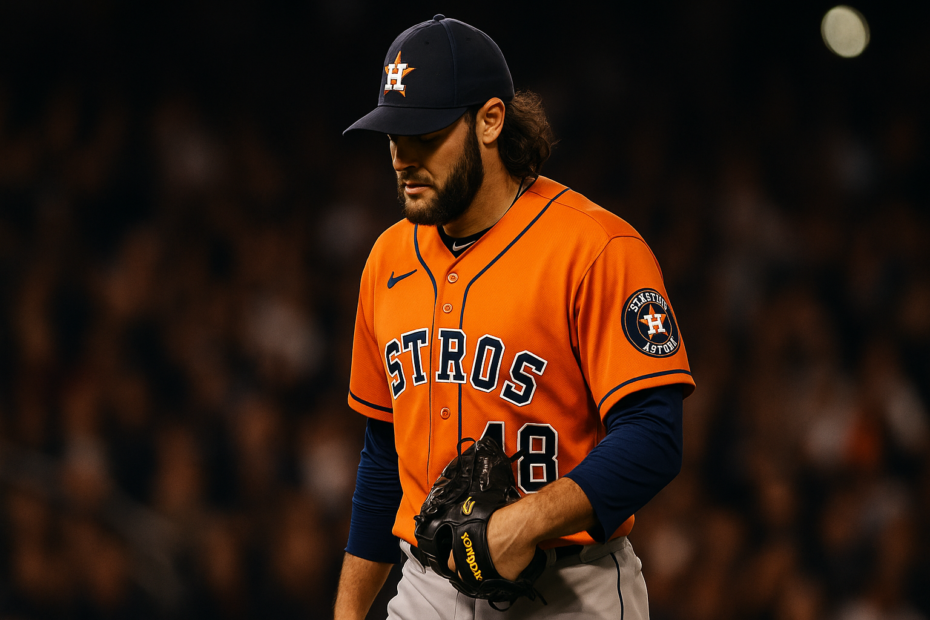Houston Astros’ Lance McCullers Jr. Hires 24/7 Security Amid Online Death Threats
Houston Astros pitcher Lance McCullers Jr. has taken decisive action to protect his family after receiving a series of alarming death threats following a challenging performance earlier this month. The threats, which extended to his wife, Kara Kilfoile, and their two young daughters, prompted McCullers to hire round-the-clock security and involve both Major League Baseball (MLB) security and the Houston Police Department.
A Disturbing Trend in Professional Sports
The incident underscores a growing concern in professional sports: the escalation of online abuse directed at athletes and their families. McCullers’ experience is not isolated. Boston Red Sox reliever Liam Hendriks recently disclosed receiving similar threats, including vile comments referencing his past battle with cancer.
Many players attribute this rise in hostility to the increasing prevalence of sports betting. Veteran Red Sox reliever Justin Wilson noted, “You get a lot of DMs or stuff like that about you ruining someone’s bet or something ridiculous like that.”
The Personal Impact on McCullers and His Family
The threats had a profound emotional impact on McCullers’ family, particularly his 5-year-old daughter, Ava. After overhearing a conversation about the threats, she asked her father, “Daddy, like, what is threats? Who wants to hurt us? Who wants to hurt me?” McCullers described these conversations as “tough to deal with.”
In response, Astros owner Jim Crane stepped in to ensure the family’s safety by hiring 24-hour security. McCullers emphasized the necessity of this measure, stating, “You have to at that point.”
MLB’s Response and Broader Implications
The Astros and Red Sox organizations are collaborating with MLB security to address these threats. Efforts include deploying cyber analysts to identify and remove offending accounts. However, the anonymity afforded by social media platforms poses significant challenges in holding perpetrators accountable.
Some players, like Detroit Tigers outfielder Riley Greene, have chosen to disengage from social media entirely due to the negativity. Greene stated, “I deleted it. I’m off it. It sucks, but it’s the world we live in, and we can’t do anything about it.”
A Call for Change
The experiences of McCullers, Hendriks, and others highlight the urgent need for a cultural shift in how fans engage with athletes. While criticism is an inherent part of sports, crossing the line into personal threats is unacceptable. As McCullers and his family navigate this challenging time, their story serves as a stark reminder of the real-world consequences of online harassment and the importance of safeguarding the well-being of athletes and their loved ones.
